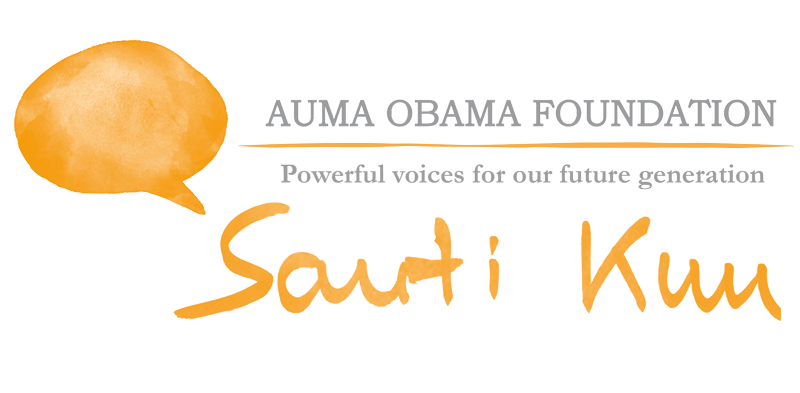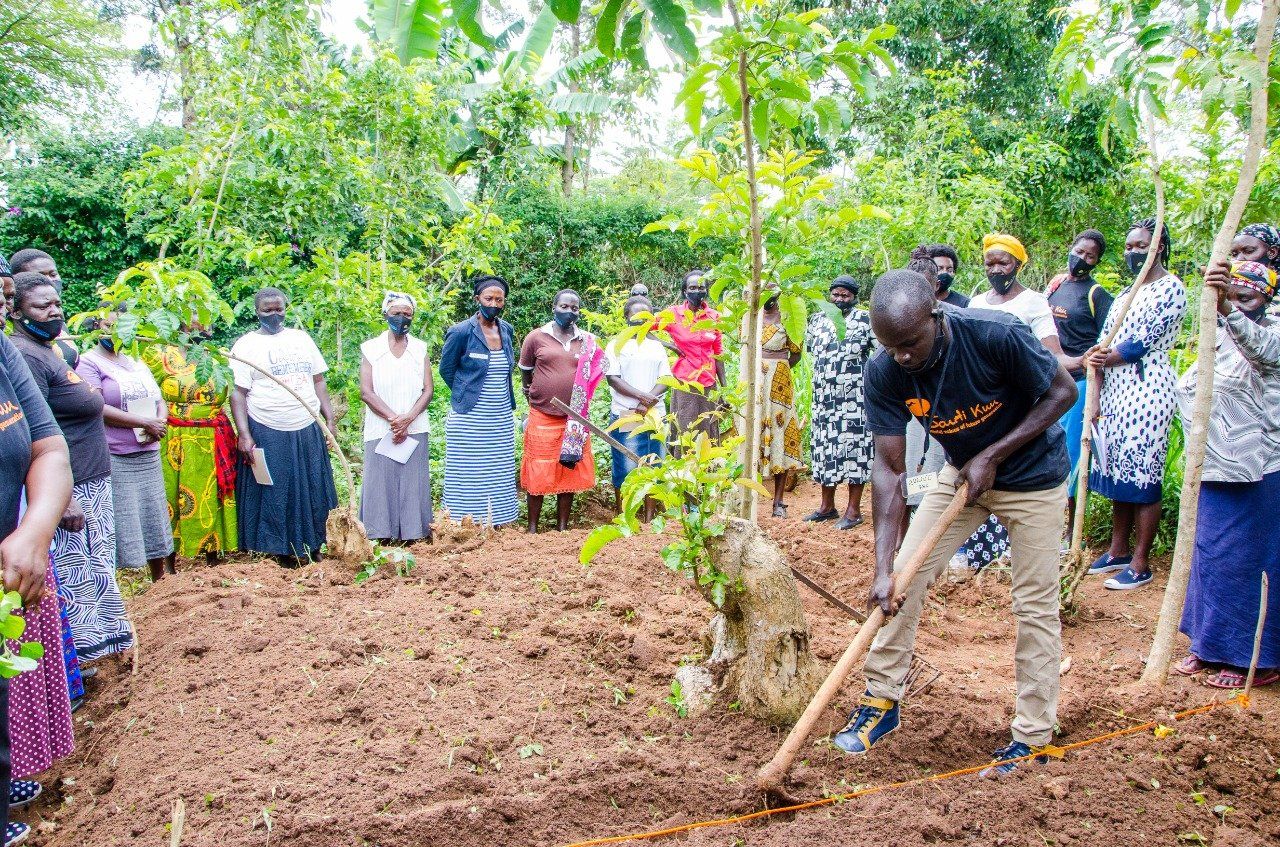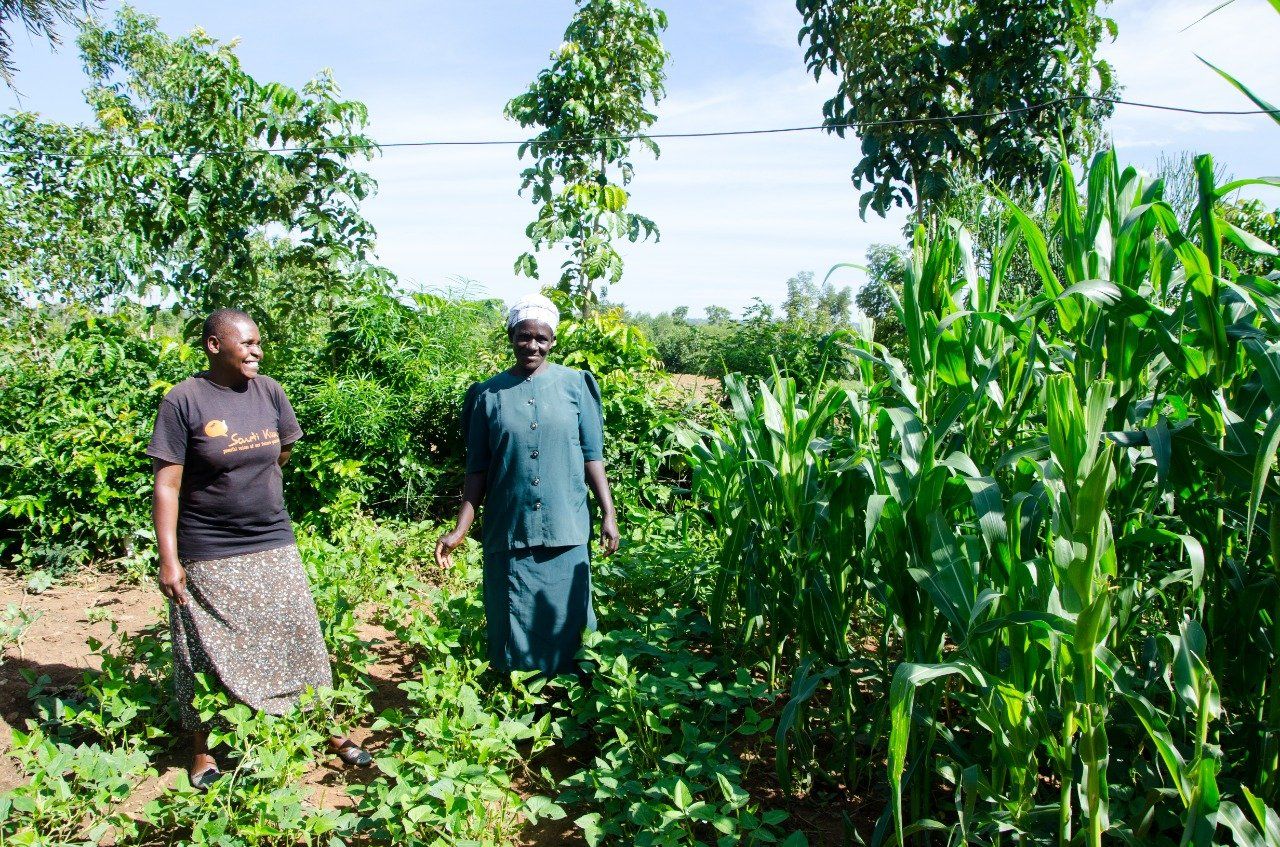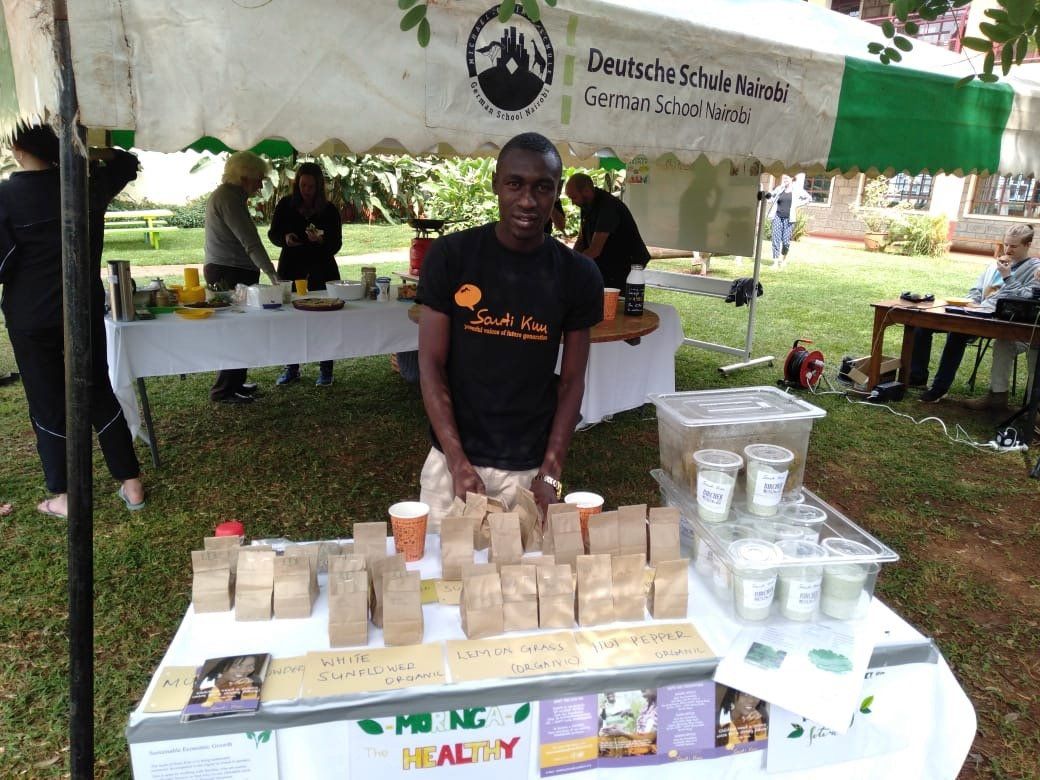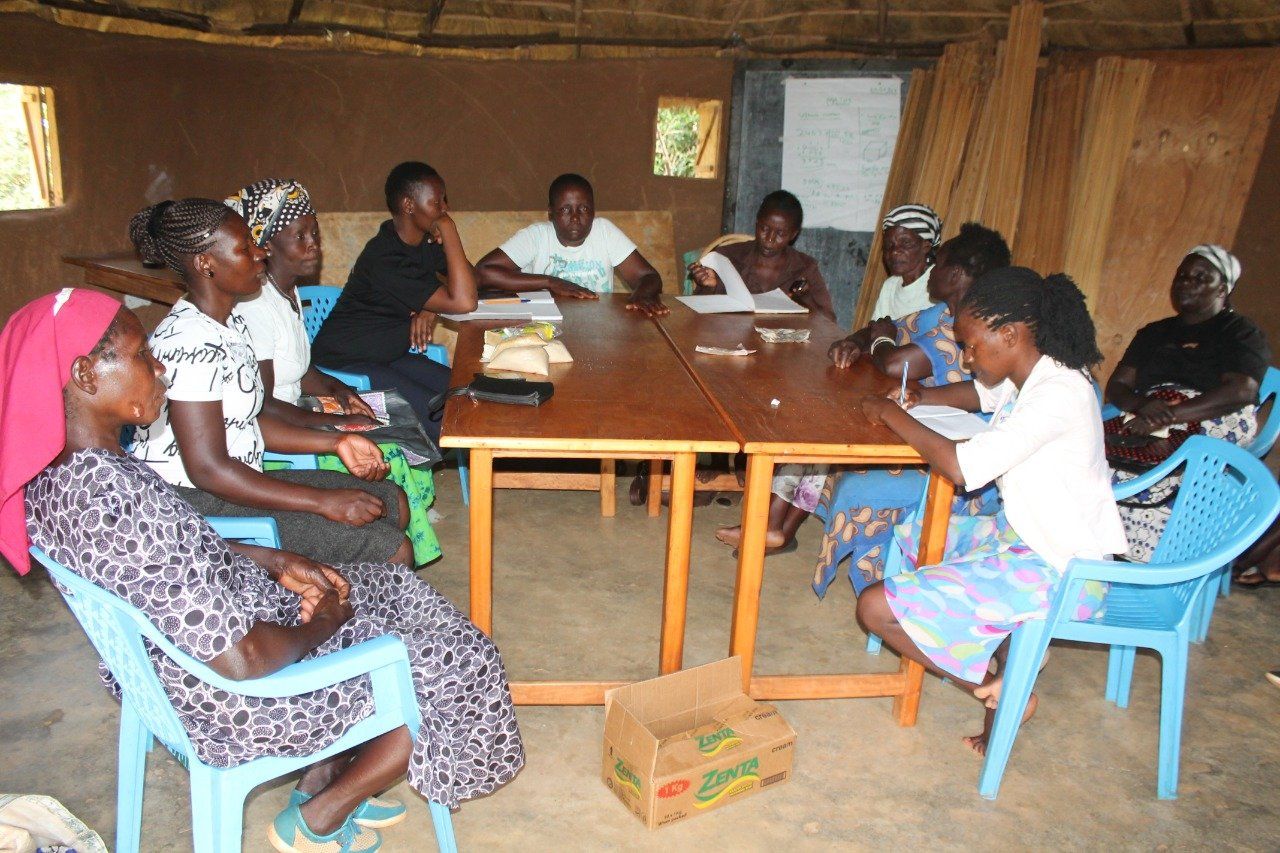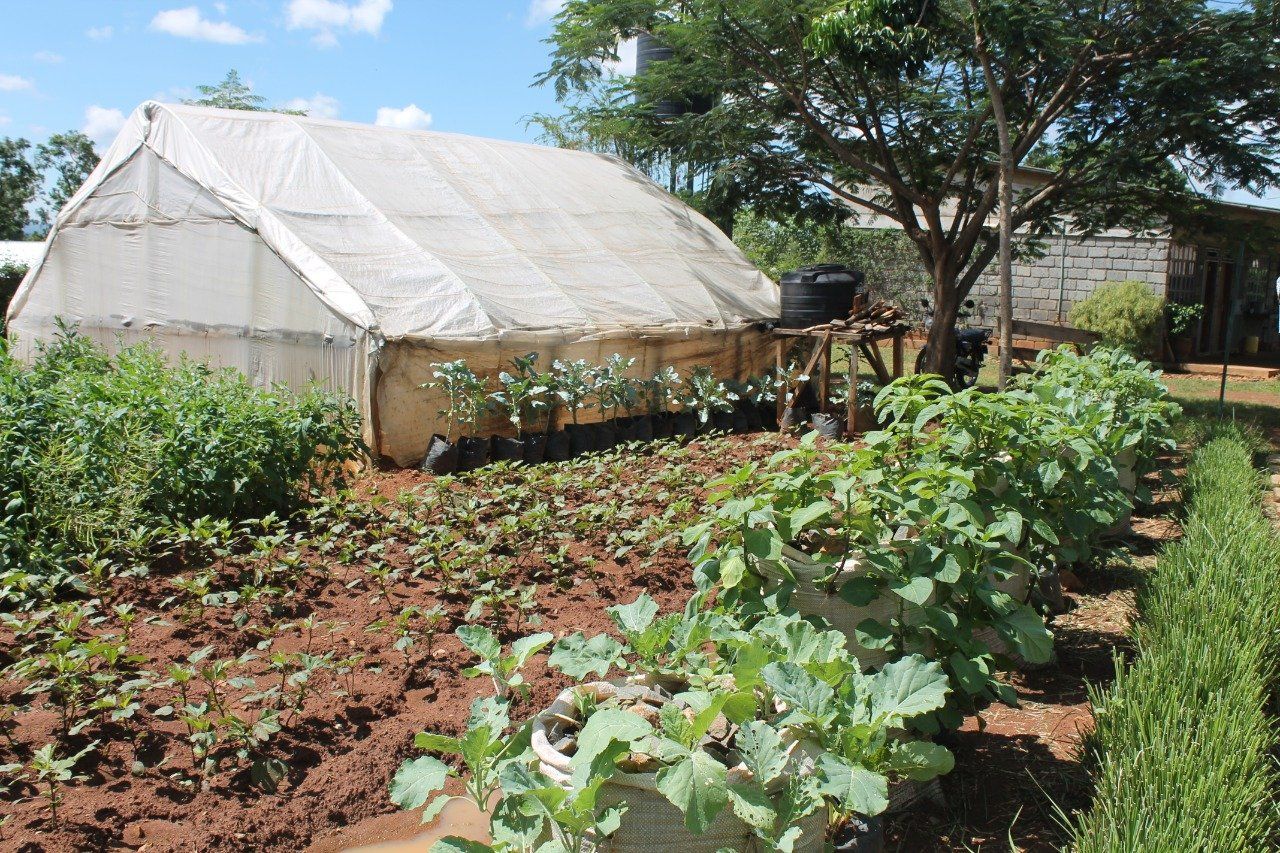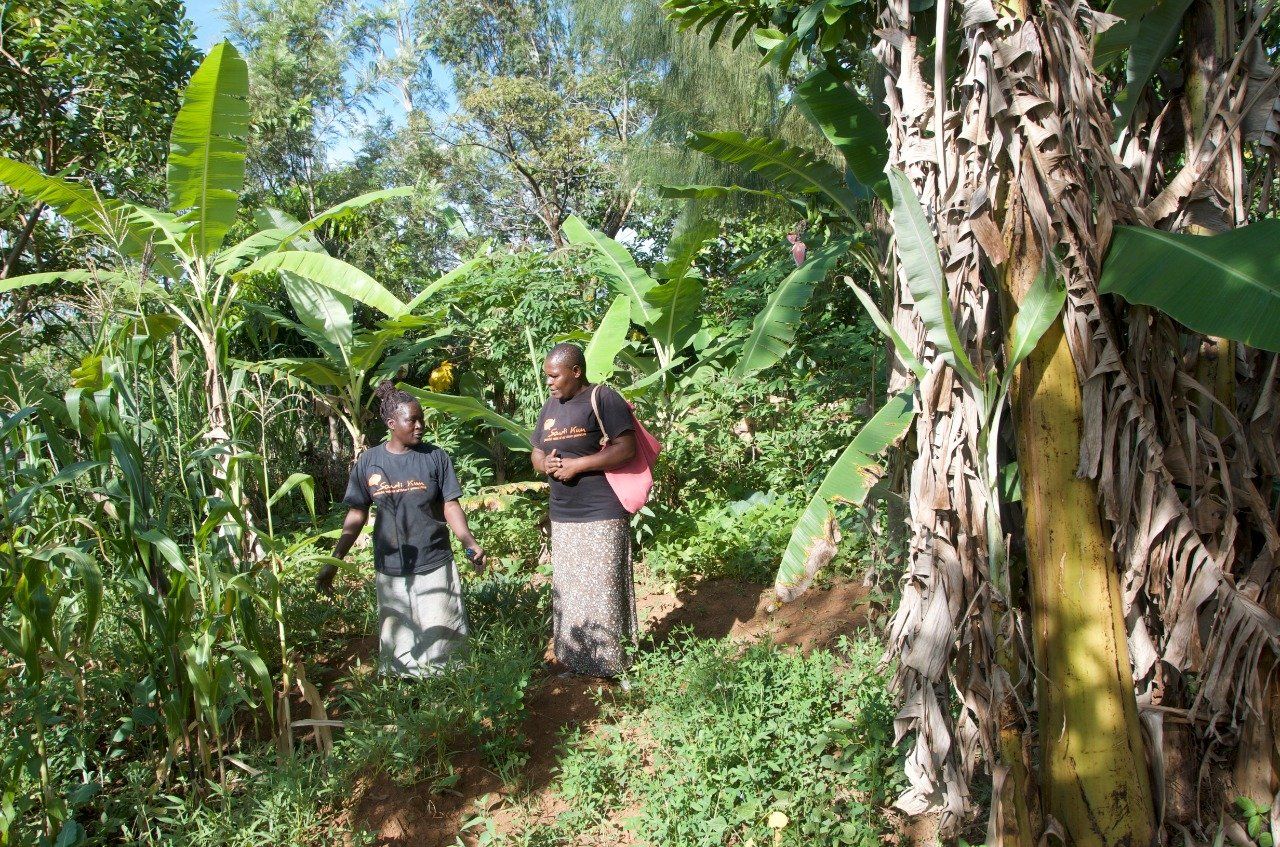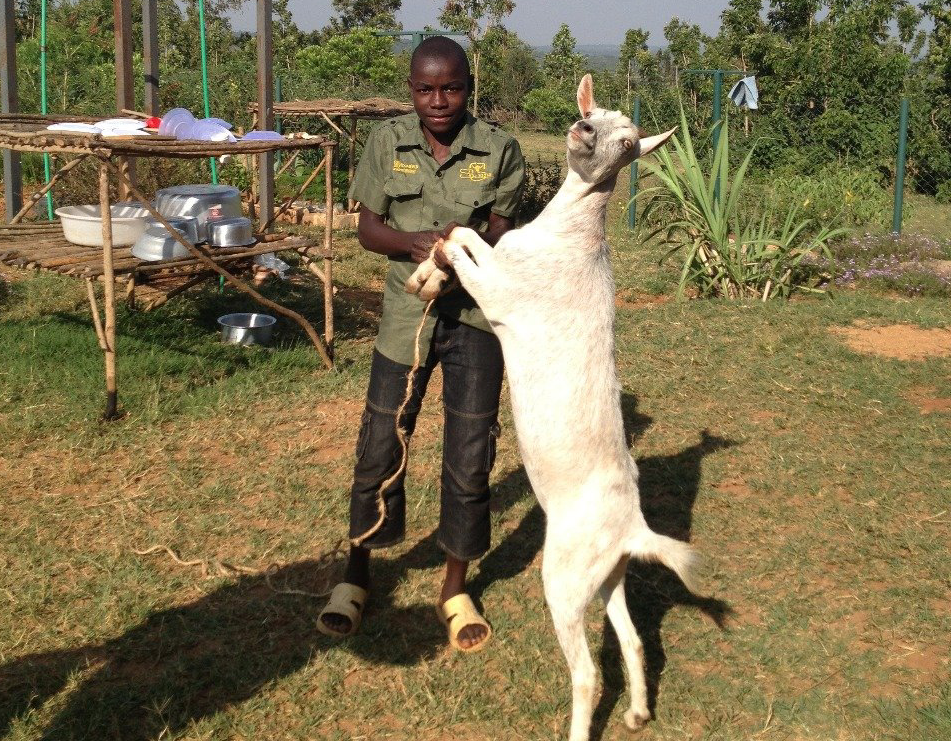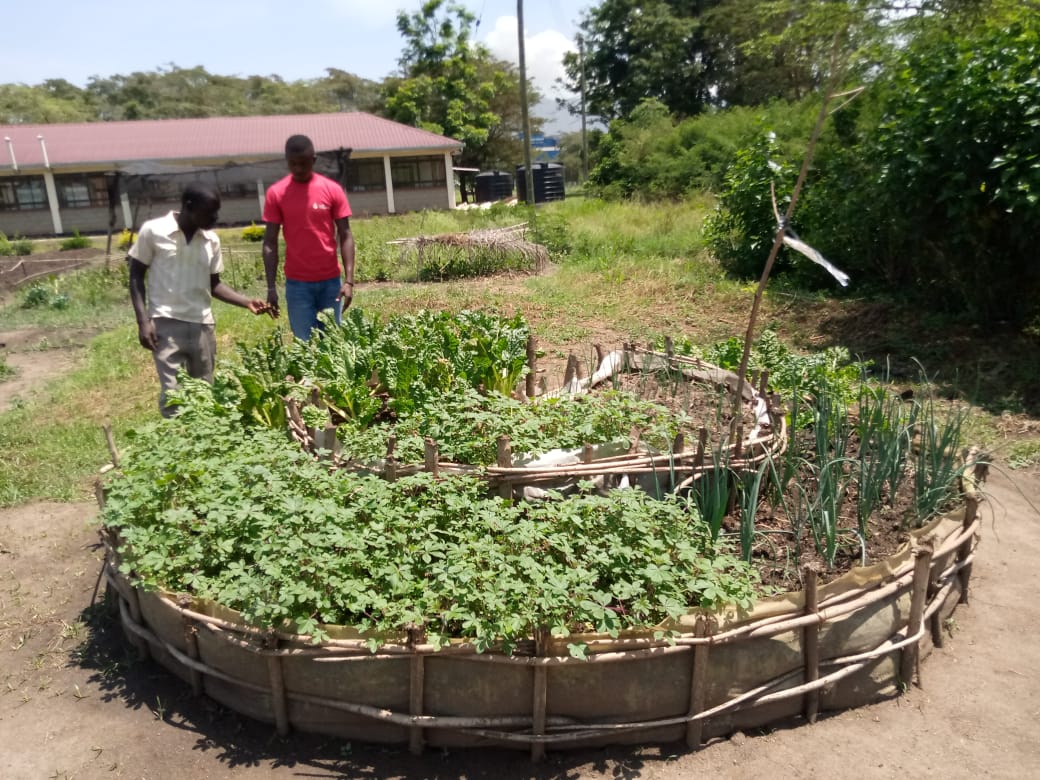Sustainable Economic Growth
ONGOING PROGRAM ACTIVITIES
Demonstration Gardens
The Sauti Kuu Demonstration Gardens are on various Sauti Kuu sites in Alego Nyangoma, Siaya County, Western Kenya. The gardens have been created to grow both local indigenous crops, as well as exotic (non-indigenous) ones. The purpose being to experiment with and demonstrate what crops can grow and flourish in the region.
The young people, their parents and the community are regular visitors to the Demonstration Gardens. They learn not only what can grow, but also different improved farming methods. In some cases the same crop is grown in a Demonstration Garden as in the Greenhouse to see which conditions are most ideal for their growth.
Grow To Eat
This program activity targets the families of the Sauti Kuu children and youth. In Siaya County the population consists of smallholder farmer families engaging in small-scale farming and in small business. The yield from the farms (mainly cereals) are solely dependent on two rainy seasons yearly that over the years have become erratic and unreliable, resulting in inconsistent farming patterns.
The sole reliance on unreliable rainfall for agricultural farming activities has resulted in a drastic decrease in yield from the farms. Families are struggling to sufficiently feed themselves and their children and there is a constant threat to food security in the region.
The acute shortage of food and poor access to sufficient and nutritious food has resulted in hunger and or a poor diet that is leading to a huge raise in under- and malnourished children and young people. The objective of the Sauti Kuu Grow To Eat program activity is to prevent child malnutrition and promote behavioral change toward healthy eating and living. The aim is to replace the current diet of the children, young people and their families (starchy and carbohydrate heavy) with a nutritious healthy balanced option that consists also of organic vegetables, herbs and fruit. The families are introduced to the basics of organic farming and making compost from manure and green matter and are assisted to establish
kitchen gardens inside their family homesteads, to enable them diversity their garden produce, and so provide their children with a balanced healthy and nutritious diet. Currently 350 families have established kitchen gardens with Sauti Kuu.
Grow To Earn
Although Sauti Kuu has come very far with helping put food on the tables of its beneficiaries, the long term goal is to go beyond this and enable the smallholder farmer families to fight poverty and earn a living from what they grow on their land; this not just from the surplus produce from their kitchen gardens, but also from their bigger pieces of land where currently mainly cereal is grown. The Grow to Earn program activity is closely linked to the Sauti Kuu Saving Scheme, which promotes income-generating activities with the monies earned from the surplus grown in the kitchen gardens. And although most participants of this program activity have been women, the men are now taking an increasingly active role in the work of the kitchen gardens and the resulting income-generating options, to the point that there is now an active mens only saving scheme group.
The participation of the male parents and guardians has improved the family bond and collective incentive to better their lives.
The intended further development of Grow to Earn program initiative, is to support the families with technical know how to work their larger pieces of farmland to generate an income on a commercial level.
At present a total of 270 families are able to sell and earn money from the surplus from their kitchen gardens.
Saving Scheme
The Saving Scheme is an initiative that promotes income-generating activities among Sauti Kuu beneficiaries' parents and guardians and teach them how to save and manage money. This activity is called ‘Table Banking’, a group savings and lending programme, to which members make a financial contribution that is used, in turn, to provide them with loans at a small interest rate.
Each member of the group sets aside a portion of the income earned from the sale of the surplus produce from their kitchen garden to contribute to the scheme. They learn how to save and how to responsibly borrow (Loan) money from these savings. The funds borrowed are in the norm used to either start small businesses or cater for domestic needs such as school fees, medical bills, or repairs to the homes. The core objective of this activity is to enable the beneficiaries to have financial stability so that they can enter into a cycle of earning and saving that will give them economic stability. Sauti Kuu currently has 10 Saving Scheme groups with a total of 164 families participating. Up until October 2020 the savings groups members were all women. As of November 2020 Sauti Kuu now also has a men's Saving Scheme group.
The Greenhouse
With the financial support of the Gies family, from Germany and Khanjan Mehta, then Director of Humanitarian Engineering and Social Entrepreneurship (HESE) Programs of the State University Pennsylvania, USA, Sauti Kuu was able to put up a low cost greenhouse on their site. This is one of the Sustainable Economic Development Program projects being used to show the SKF young people and their families the different methods of farming. They learn that in the greenhouse they can grow different types of crops, while optimizing space and still being able to yield a harvest and earn an income independent of weather conditions.
Sustainable and Regenerative Farming
As Sauti Kuu helps their beneficiaries' families (smallholder farmers) to grow food for their own consumption and to sell the surplus for income at the local markets, we also work with them to develop more effective methods for growing and producing crops. This in the spirit of transforming the prevailing mind-set of dependency and complacency common to financially disadvantaged communities, to one of ownership and pro-active participation. Using the principle: “Use what you have to get what you need!” we focus on redefining poverty and teaching the farmers how to fight it using the land they own. We show them how nature already gives them so much to work with.
Farming methods being introduced at Sauti Kuu are Permaculture, Regenerative Agriculture and Dynamic Agroforestry. These are methods of farming that focus on soil health, encouraging cover cropping, mulching, minimum tillage and other soil health rejuvenating techniques. The farmers are taught to appreciate the locally available resource - land, as well as to respect and protect the environment as a whole. Both of which are assets, to ensure food security and sustainable livelihoods.
Livestock Breeding
Sauti Kuu’s Livestock Breeding Project began with two goats and has expanded to include 8 goats, 6 sheep and 4 cows. The aim of training in livestock keeping is to diversify and offer further farming options to the families. To date over 450 young people and their parents have had an opportunity to learn about livestock farming. They also receive instruction on the use of livestock manure as a fertiliser to improve their vegetable and cereal growing operations.
Community Agribusiness
Sauti Kuu is developing and implementing a self-sustaining, community-based and community-led, integrated economic growth and development model focussed on agriculture to improve the lives of impoverished rural communities in Western Kenya. Our model is focused on actively engaging rural children and youth and their families in the realization of their potential to achieve sustainable economic independence through agricultural activities. This is been done by advocating for and demonstrating how self-sustainability is possible using locally available resources in the form of land to improve and secure ones livelihood. The revaluing of ecosystems is embedded in the model specifically because in the case of rural communities, land is a valuable asset — although usually undervalued and underutilized. The lack of funds for chemical fertilizer, gene-manipulated seeds and pesticides means that, by default, most of the rural smallholder farmers are organic farmers. Sauti Kuu applauds this because a key component of the Foundation's methodology is to encourage the rural small holder farmer to farm organically in order to promote land appreciation, preservation and conservation.
Our sustainable economic growth approach is based on teaching the community different farming technologies and methods of intervention, to cultivate and appreciate agricultural land as a means to secure their livelihoods. Farming as an income-generator, is not very prevalent in Western Kenya. Sauti Kuu's approach hopes to inform the discourse around Agribusiness and its sustainable impact by adding new knowledge to promote implementation on the ground.
Building resilience and securing livelihoods is only possible if economic independence and sustainability is achieved. Sauti Kuu helps the small holder families organize themselves to utilize locally available resources to become part of the economic value chain. Together they support each other in the implementation of new and innovative farming methods.
